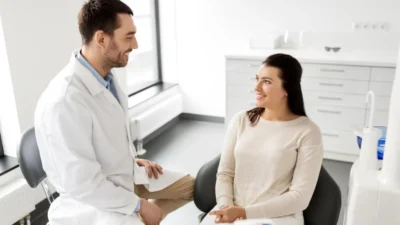Addiction recovery is a long and uncertain journey. Many people begin it with fear, doubt, and questions about whether healing is truly possible. The truth is, lasting recovery does not rely on luck or chance-it relies on methods that have been studied, tested, and proven to help.
Evidence-based treatment gives people not only hope but also tools that work in real life. It transforms recovery from a guess into a guided path forward. Keep reading to see how these proven approaches open doors to freedom and strength.
Why Evidence Matters in Recovery
The world is filled with quick fixes and untested ideas. For people struggling with addiction, these can seem tempting but often lead to disappointment. Evidence-based treatment is different. It is built on research, clinical studies, and real-world results. It means the methods used have been tested on many people, tracked carefully, and shown to create change.
This does not mean treatment is the same for everyone. It means the core methods are grounded in science, but they are shaped to fit the person. By starting with proven approaches, the chance of success grows. Evidence gives both the person in recovery and the care team confidence that they are walking a path that has already helped many others.
Cognitive Behavioral Therapy and Changing Thought Patterns
One of the most widely used evidence-based treatments is cognitive behavioral therapy, or CBT. This method looks at how thoughts, feelings, and actions connect. Often, negative thinking patterns fuel addictive behaviors. A person might feel worthless, so they use substances to cope. Over time, this cycle becomes a trap.
CBT helps break that cycle. It teaches people to notice harmful thoughts and replace them with healthier ones. Over time, this creates new habits that support recovery. The strength of CBT is that it is practical. It gives people skills they can use every day, not just during therapy sessions.
Motivational Interviewing and the Power of Choice
Another proven method is motivational interviewing. Many people enter treatment unsure if they even want to change. This approach meets them where they are. Instead of pushing, it encourages self-reflection. A therapist asks gentle questions that help the person explore why they might want to recover and what life could look like without addiction.
Motivational interviewing respects the person’s right to choose. It does not force them into decisions. Instead, it helps them discover their own reasons to take the next step. This makes recovery more powerful because it grows from within rather than being pushed from outside.
Medication-Assisted Treatment and Balancing the Body
Addiction does not only affect the mind. It changes the body as well. For some people, medication is an important part of recovery. This method is called medication-assisted treatment, or MAT. It combines prescribed medicines with counseling and therapy.
The medicines work by reducing cravings, easing withdrawal, or balancing brain chemistry. They do not replace recovery work but support it. By calming the body, MAT gives people the strength and focus to stay engaged with therapy and other parts of treatment. Research has shown that MAT can reduce relapse rates and improve long-term recovery outcomes.
Group Therapy and the Healing of Community
Recovery is hard to face alone. That is why group therapy is another evidence-based method that brings lasting results. In groups, people share their struggles and victories with others who understand. This creates a sense of belonging that many people have been missing.
Hearing someone else’s story can spark hope. Sharing your own story can bring healing. The group becomes a safe space where progress is celebrated and setbacks are faced together.
Family Therapy and Restoring Connections
Addiction does not only affect one person-it touches everyone around them. Families often carry pain, anger, or confusion. Evidence shows that family therapy can play a big role in recovery. It gives families a place to speak, listen, and heal together.
In family sessions, loved ones learn how addiction works and how to support recovery without enabling harmful behaviors. The person in treatment also learns how their actions have affected those around them.
Mindfulness and the Practice of Presence
Mindfulness may seem simple, but it has strong evidence behind it. It teaches people to stay present in the moment instead of being pulled by regrets of the past or fears of the future. For those in recovery, this can be life-changing.
Through mindfulness practices like meditation, breathing exercises, or gentle movement, people learn how to face cravings or stress without giving in. They discover that they can pause, breathe, and choose a healthier response.
The Role of Professional Support
Evidence-based treatment is only as strong as the people who deliver it. Professional support from trained therapists, counselors, and medical staff ensures that these methods are applied correctly. They also adjust treatment as needs change.
Programs such as those at Addiction Resource Center LLC. bring together teams who understand both the science and the human side of addiction. With this kind of support, people are not left to figure out recovery alone-they have guides who walk beside them.
Aftercare and Continuing the Work
Recovery does not end when treatment ends. Studies show that people who stay connected to aftercare are more likely to succeed. Aftercare can include ongoing counseling, support groups, or regular check-ins with a care team. It gives people a net of support when life feels heavy again.
Building Hope Through Proven Paths
At the heart of evidence-based treatment is hope. Hope that healing is not only possible but likely when the right steps are taken. These methods are not guesses-they are proven paths that others have already walked. They give people structure, strength, and skills to keep going even when recovery feels hard.
Hope is not about denying struggle. It is about knowing there is a way through it. Evidence-based methods provide that way, and every person who chooses them takes one more step toward a brighter, healthier future.
A Future Strengthened by Science and Care
Recovery is not about chance-it is about choice. With evidence-based treatment methods, that choice becomes stronger, safer, and more lasting. By combining proven therapies, medical support, and human connection, these approaches give people the best chance at a life free from addiction.
If you or someone you love is ready to begin, now is the time to take that step. Recovery built on evidence is recovery built to last. Let the strength of proven methods guide you toward freedom, peace, and a new chapter filled with life and hope.
For more on this content, visit the rest of our blog!

Lexy Summer is a talented writer with a deep passion for the art of language and storytelling. With a background in editing and content creation, Lexy has honed her skills in crafting clear, engaging, and grammatically flawless writing.



